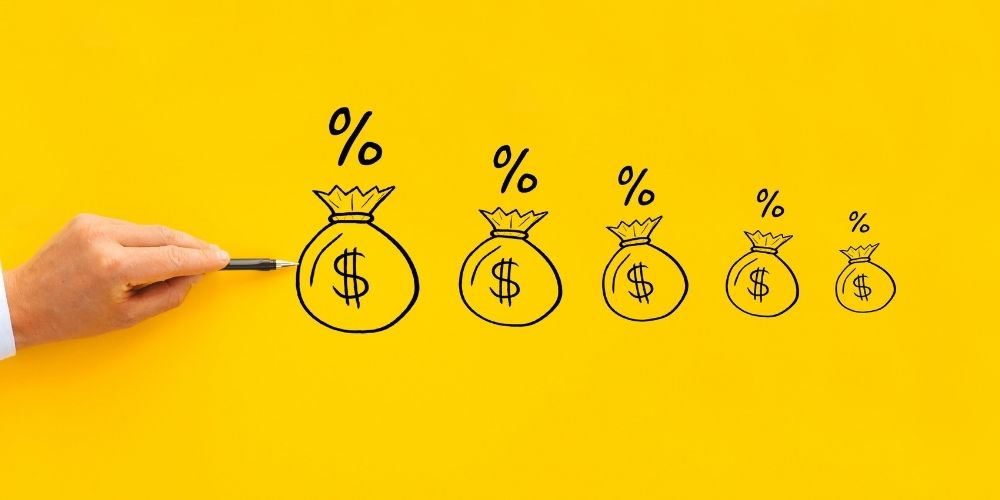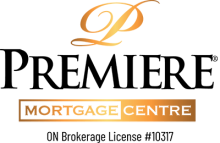
Hold onto your Variable Mortgage
Firstly, if you’re considering locking into a fixed rate, don’t. The ongoing conflict between the Ukraine and Russia has resulted in a sharp decrease in the bond yields, which if not resolved quickly, will result in fixed rates decreasing again. So if you really want to lock in, now is unlikely to be the best time to do so. Wait it out a bit.
Fixed rates and variable rates are determined by different factors, so they do not increase or decrease in unison. Fixed rates are driven by the bond yields, the long term outlook for the economy, and variable rates are driven by the overnight lending rate (the one that just changed), and how short term money in lent.
Variable Rate benefits remain the same
Secondly, think about why you picked a variable to start with: The rates are lower, and always tracks with current market rates. Historically, variable rate mortgages come out on top of fixed rates, and it is hard to not only think “What if rates go up?”. As we saw with COVID and what is happening in the Ukraine, world events can change economies rapidly.
The main reason for the variable I discuss with all my clients is the freedom to make changes to your mortgage without potentially incurring huge penalties. When you look at stats, approximately 60% of Canadians will break their mortgage around the 36 month mark, meaning they want to make some sort of a change to their mortgage at this time. You’re in a contract with your lender, so when you break your mortgage, you’ll pay a penalty to do so. When you break a fixed rate mortgage, typically this penalty will be a calculation called the “Interest Rate Differential” which more often than not works out in the favour of your lender, and not yourself.
Reasons to break your mortgage
People never think they’ll break their mortgages, “I just want to live in my house, and I’m really happy” but ultimately the majority do for a whole host of reasons:
- You want a lower rate or payment, so refinance to get it
- You want to do renovations, and your house has appreciated in value, so where can I get the cheapest money to do this? My house!
- You’ve accumulated higher interest consumer debt you want to eliminate
- You get married – 2 people, with 2 homes and 2 mortgages want a family home: Someone will pay a penalty to break a mortgage.
- You get separated – it likely took 2 of you to qualify for your current mortgage, but one person alone may not be able to qualify for the mortgage on only their income, especially with potential liabilities like alimony and child support.
- You sell your house and want to port (take your mortgage to your next house) but can’t. Why can’t you? Unfortunately, just because a mortgage is portable it doesn’t mean every property fits the criteria for every lender. When porting a mortgage, a lender will also requalify you for the mortgage, and again, you may not then qualify because of a major life change such as a new job, becoming self-employed, increased debt, unique property, etc.
- You want to use your house to start a business or cover debts of an existing failing business, without having to sell your home.
The above could all be reasons why you end up paying a penalty to break your mortgage. If you have to break a variable rate mortgage, then the penalty is limited to 3 months of simple interest, and not the Interest Rate Differential. To estimate what this may cost you, to break a variable rate mortgage the penalty would be around 0.5% of your mortgage balance. To break a fixed rate, around 4%.
On a $400,000 mortgage this would be a $2,000 penalty vs. a $16,000 penalty.
A $400,000 mortgage
Penalty
FIXED RATE
$16,000
VARIABLE RATE
$2,000
** For the fixed rate, you can’t pin down the exact cost, as it all depends at what point in time you break your mortgage, the rates at that time, and the rate you originally got on your mortgage. The moral is it’s usually not in your favour.
A little insider mortgage rate tip

You will hear some lenders tell you that they don’t charge a penalty for you to break a fixed rate mortgage. However what they do is offer you a rate higher than their best market rates, and then blend the penalty into the rate, thus meaning you pay it anyway. Or they’ll offer you “cash back” for the penalty, which if you then break the mortgage within the term, they will claw back from you.
Increase in payment per 100k
To give an example of what an increase in mortgage payment will look like with the increase to the prime lending rate, the following example shows $100,000 at Prime minus 1.00% (an average rate right now) amortized over 25 years.
Prime was 2.45%, and with your discount of 1.00% your rate is 1.45%. Your monthly payment on $100,000 would have been $397.
Prime is now 2.70%, so with a 1.00% discount your rate will now be 1.70%. Your new monthly payment would be $409.
If your mortgage was say $400,000, then multiply the above by 4, and the increase in payment is $48 per month.
If you were to lock into a fixed rate based on the above right now based on the same scenarios, the payment per $100,000 would be around $475. You’ve automatically and voluntarily increased your mortgage payment, while also undoing all the pros of the variable: The limited mortgage penalty should you want to make a change.
What Should You Do?
Ultimately, the best decision is the decision that is right for you. If you’re going lose sleep over the potential for your mortgage payment to increase, then maybe a fixed is right for you. But don’t forget, if you think you might want to make a change in the term of your mortgage, as the majority of us do, you could be penalized heavily by wanting to break a fixed rate mortgage.
Variables rates don’t only go up; they may go up, then come back down; they may go up, then sit flat for a long period of time. Who is to say when another event such as COVID may come along again keeping us in a low rate environment.
Your life is variable, so shouldn’t your mortgage be too?
Tim Ward, Collingwood Mortgage Broker.









